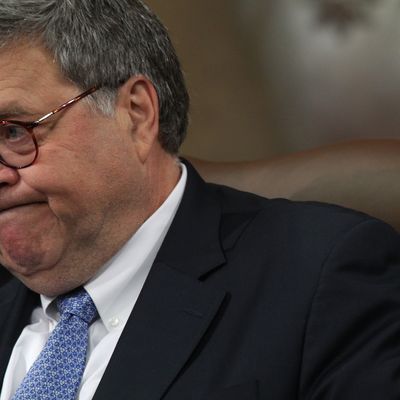
After two mass shootings in Texas this month left 28 victims dead and 46 injured, state lawmakers responded — the day after the rampage in Midland and Odessa — by passing multiple laws loosening firearm restrictions, making it easier for owners to carry guns in churches, schools, and after disasters are declared. Despite a brief flirtation with stricter background checks following the shooting in El Paso, President Trump said after the shooting this weekend that he doesn’t consider an expanded check process to be a viable solution to curbing gun violence — despite research that suggests such laws bring about a 40 percent decline in gun homicides and a 15 percent reduction in suicides.
On Monday, Bloomberg reported of another failure on the national stage to treat America’s epidemic of gun violence with an acute gun-control solution.
A little over a month since the administration announced the return of federal executions, Vice-President Mike Pence is now reportedly working with Attorney General William Barr and other Justice Department officials to draft legislation that rushes the execution of convicted mass murderers as a deterrent to future mass shooters. Though the idea was first announced earlier this summer and the details are few, former Vice-President Joe Biden described the proposal aptly on Monday on the campaign trail in Iowa: “What you do when you can’t get something done that’s rational — you increase the penalty for the irrational.”
But irrationality is the norm in the Trump administration, from the trade war with China that dampens the economy, to the apparent blaming of Puerto Rico for the government’s underwhelming hurricane response on the island. Letting the Second Amendment run rampant over all other American liberties, despite the deaths of 346 Americans in mass shootings in 2019, forms to the logic of the administration — even if it didn’t already fit with the Republican Party’s staunch order not to enact gun reform. As New York’s Eric Levitz put it after the August shootings in El Paso and Dayton, Ohio, Trump’s non-reform efforts do not approach the problem in a linear fashion:
The president demanded unspecified measures to eliminate “gruesome and grizzly video games.” He called for reforming “our mental health laws to better identify mentally disturbed individuals who may commit acts of violence and make sure those people not only get treatment but, when necessary, involuntary confinement.”
In other words, Trump proposed restricting freedom of expression, locking up anyone who strikes law enforcement as egregiously mentally ill for pre-crimes, and curtailing the due process rights Americans can assert before their government executes them.
The reported plan to expedite the execution process for mass shooters rather than enact gun reform is made more irrational by the fact that there is no evidence that the death penalty serves as a deterrent for potential capital offenders. There appears to be no deterrent effect on capital crimes between states with and without the death penalty. One study from 2009 found that 88 percent of criminologists did not consider the threat of execution as a deterrent, a level of consensus that matched the scientific consensus on human involvement in global warming. “It’s the certainty of apprehension that’s been demonstrated consistently to be an effective deterrent,” Carnegie Mellon criminologist Daniel Nagin told the Washington Post. “Not the severity of the ensuing consequences.”






























